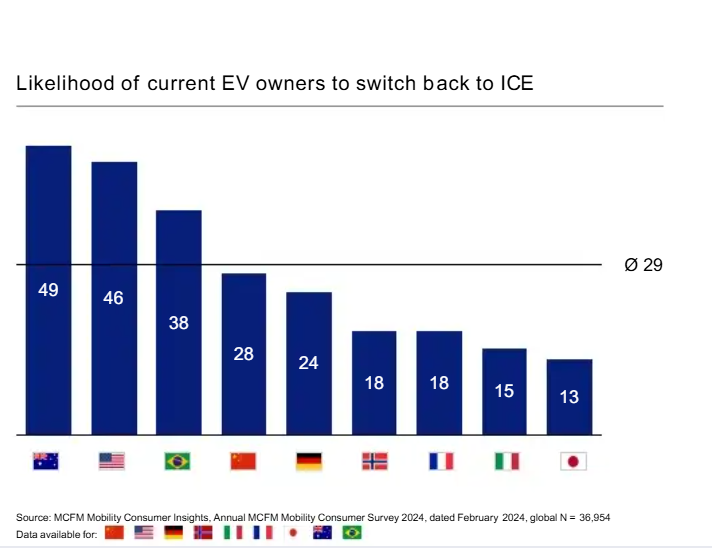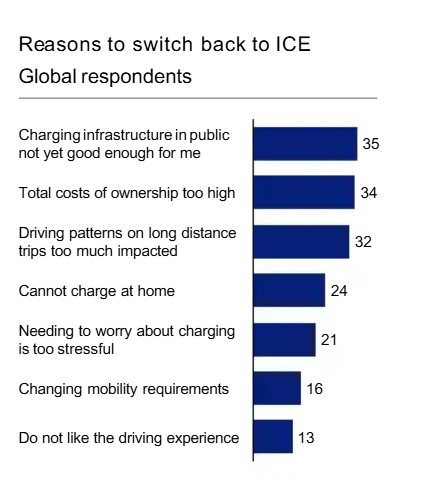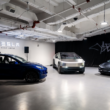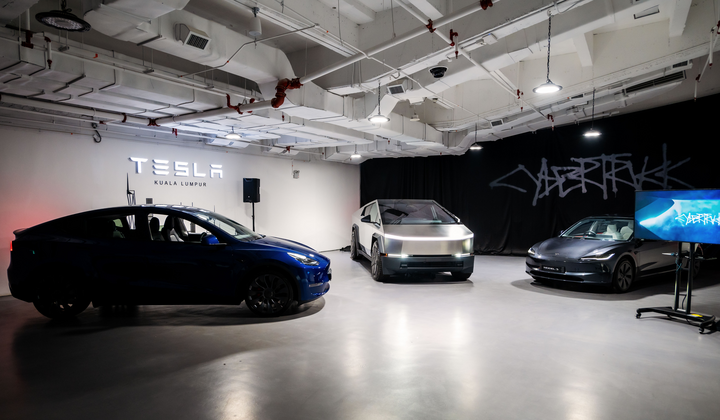A recent study conducted by McKinsey & Co, an American multinational strategy and management consulting firm, sheds light on an intriguing trend among electric vehicle (EV) owners in 15 countries.
According to the McKinsey Mobility Consumer Pulse survey, up to 49% of EV owners are contemplating a return to internal combustion engine (ICE) vehicles.

The main factor driving a potential return to fuel-powered vehicles is the insufficient public charging infrastructure. The slow expansion of charging stations, which is vital for the broad acceptance of electric vehicles, has left numerous EV owners dissatisfied.
In addition to charging infrastructure, the high costs of ownership and the constraints of long-distance travel are significant obstacles.

The survey, which gathered responses from over 30,000 consumers in 15 countries, accounting for more than 80% of the global sales volume, indicates that 29% of electric EV owners globally might revert to ICE vehicles.
Charging issues are a prevalent concern, with 21% of respondents worldwide expressing no intention of transitioning to an all-electric vehicle. Among them, 33% pointed to the charging infrastructure as a significant barrier.
The survey indicates that consumers are in search of EVs capability of sustaining longer trips without the need for frequent recharging, a demand that many current models do not yet fully meet.
Despite various challenges, the survey reveals that non-EV owners are considering moving to EV with 38% of non-EV owners globally are open to considering a plug-in hybrid (PHEV) or an EV for their next purchase, marking a 1% increase from two years prior.
1% might not seem like a lot, but this shows a positive reception towards more EVs, though with a degree of caution.
EV Trend in Malaysia
Analysts have predicted the growth potential of EVs in Malaysia, supported by the launch of new models and regulatory incentives, according to TNGlobal.
However, they believe that the RM100,000 pricing floor imposed on completely built unit EVs remains an obstacle to their adoption.
Once the market begins to receive locally assembled EVs, adoption rates are expected to rise, particularly with the anticipated launch of the first nationally produced EVs by manufacturers such as Perodua and Proton in 2025.
Another obstacle to EV adoption in Malaysia is the lack of public charging infrastructure. There are 2,288 EV charging stations nationwide as of March 2024.
According to Automotive News, Dr. Philipp Kampshoff, head of the McKinsey Center for Future Mobility in the Americas, predicts that the upcoming generation of EV purchasers will depend more heavily on public charging than the present generation, indicating an urgent need for rapid development of infrastructure.









